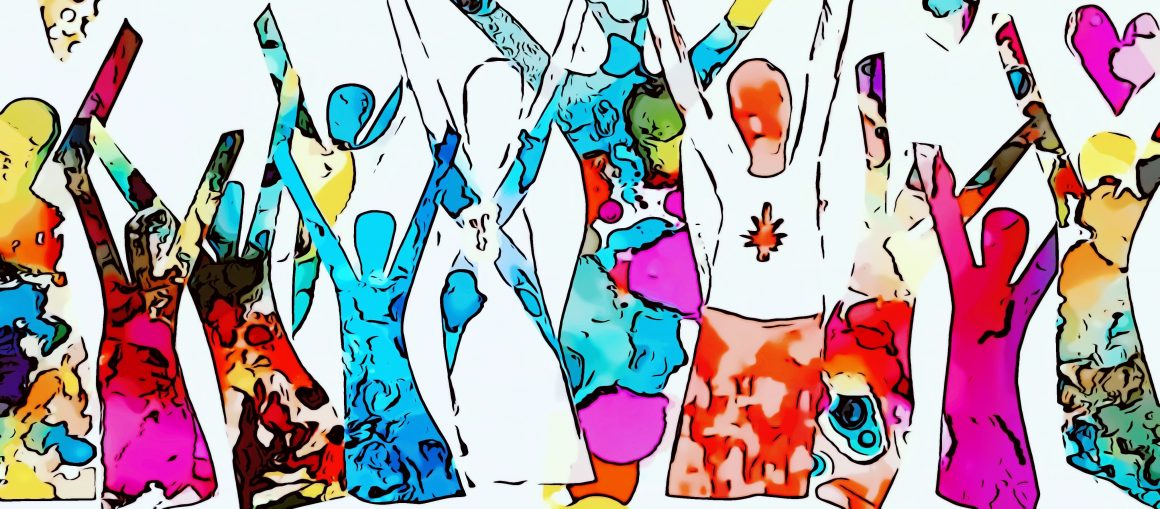by: Susan Spellman Cann and Helen MacKinnon

During stressful times it is not uncommon for us to be impacted by psychosocial factors such as excessive worry or sadness. For those who have a diagnosed mental illness, additional stresses further exacerbate the condition. As a result of excessive worry we may develop habitual, exaggerated, or irrational thought patterns called cognitive distortions.
We all have these distortions. They are normal. However, they can cause us to perceive reality inaccurately. In other words, our brain is tricking us. Instead of seeing ourselves as calm and capable, we see ourselves as just the opposite. Our beliefs become negatively distorted and we process all thoughts through a negative filter. However, if we learn to challenge and ultimately change these negative thoughts, we cannot only change how we think , but also how we feel. How do we change these cognitive distortions? First, we need to understand what these distortions are and if any of these distortions apply specifically to you. Are you tending to view things more negatively than they really are? View the following 10 most common distortions and decide which ones you may be using most frequently.
All or Nothing Thinking (Black and white thinking) You might say to yourself : “This day is awful. I can’t do anything fun anymore. I feel like life is so difficult. What’s the point of getting out of bed? Nothing ever works out the way I want it to.”
Overgeneralization: (Attributing a negative outcome based on one single event or incident) “I tried to practice music on my own, but I just could not focus. Everyone else seems to be able to do it. It must just be me who can’t. I failed when I tried to do my Biology . What’s the use of trying? I will fail every time I try.
Discounting The Positive (Believing the positive attributes you possess have no value) “ My teacher told me I did really well in the last practice, but I know he’s just saying this to make me feel better because I have been feeling sad lately.”
Mind Reading : (Assuming that you know what other people are thinking without having any evidence) “My dad seemed really quiet today. He didn’t even say good morning. I think he’s angry with me.”
Fortune Telling; (Jumping to conclusions and predicting future events based on a past events) “I messed up on the last practice. I’m never going to get this music piece correct.”
Magnification (Catastrophizing) or Minimizing: (Binocular Trick: When viewing through binoculars, it allows us only to focus on what we are looking for. We either magnify or zero in on a specific feature, not allowing for a true perspective or view. ) “I only got a 60% on my last quiz. I’m probably going to fail this course. I got 90% on all my tests but I am really unsure whether I will have the marks needed to get into my university program of choice.”
Emotional Reasoning; (Allowing our feelings to interpret our reality. I feel it, therefore it must be true.) “I feel my life is totally out of control because of x .” “I feel worried, therefore I must have anxiety. I feel sad, therefore I must be depressed.”
Should Statements; (Stop Shoulding on Yourself!) “I should be helping out more at home during this difficult time.” Or: “ My parents tell me every day I should feel lucky because others have it a lot worse than I do. ”I should be doing better in school even though life is very difficult right now. “I should get 90”s and if I don’t I am a failure.”
Labeling and Mislabeling; (Attributing one error or decision as a specific trait) “I messed up on the last question on the test. It was so easy. I am such an idiot.”
Personalization. (Blaming yourself for everything that may go wrong. It’s not all about you. Others may own a part or all of the situation) “My parents seem to be arguing a lot more. Maybe I’m irritating them. I need to be better so they don’t argue so much.” Or “My relationship ended because I was not exciting enough and could not spend more time with _____ . “
You may have recognized yourself in some of these distortions. By now you will probably have identified the ones that ring true for you. So in order to remain calm and capable, you must remind yourself of how counter productive these distortions can be. Instead, take time to reframe your thoughts so they more clearly reflect the true picture. Take each cognitive distortion find an example that you presently do and find ways to reframe each one.
Enlist friends, family members, coaches, teachers or anyone you trust to help you better challenge these distortions. This provides for a wider view, as opposed to a narrow lens approach. You can now see yourself from a whole new perspective, as a calm, capable, young person, better able to manage the ever-changing world around you.

